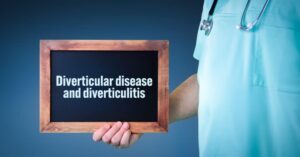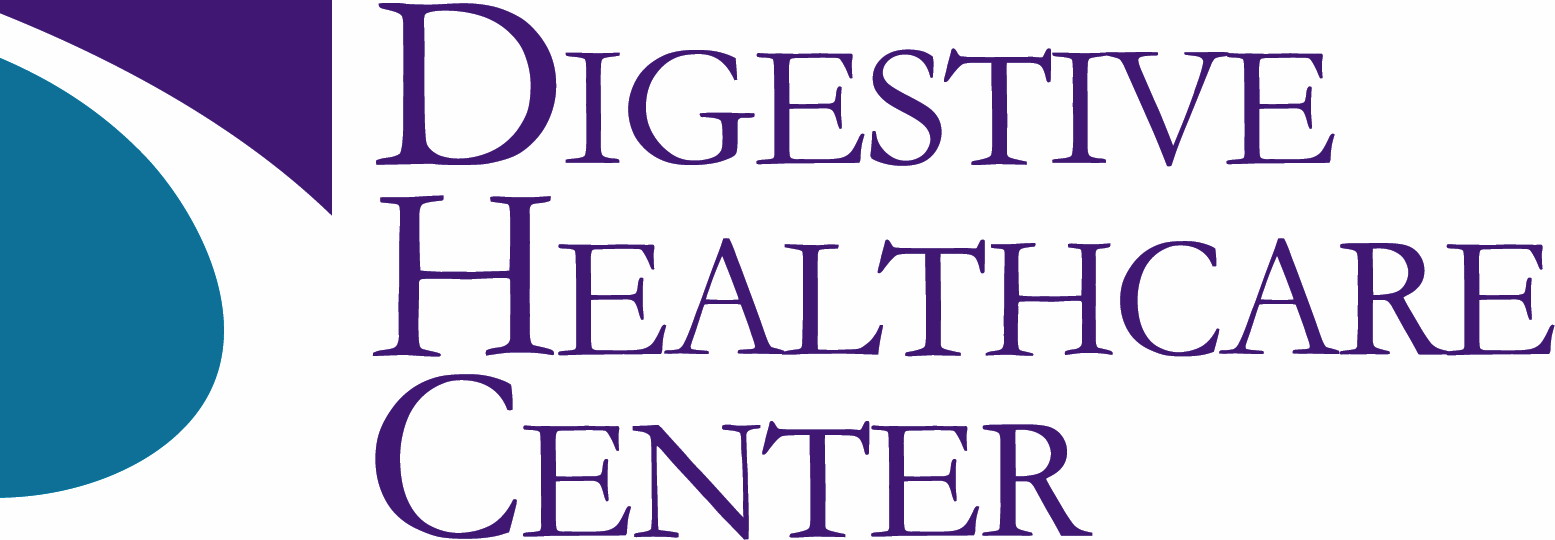Blog
Diverticular Disease & Diverticulitis: What You Need to Know
 Diverticular disease and diverticulitis are related digestive health conditions that affect the large intestine (colon). With diverticular disease, small, bulging pockets develop on the lining of the colon. When these pockets become inflamed or infected, the condition is called diverticulitis. They are very common – especially after age 40 – and rarely cause problems. At Digestive Healthcare Center, we strive to provide high-quality care for patients with a wide range of GI issues, including diverticular disease and diverticulitis. Learn more about these conditions, their causes and symptoms, and treatment options available to you at DHC below.
Diverticular disease and diverticulitis are related digestive health conditions that affect the large intestine (colon). With diverticular disease, small, bulging pockets develop on the lining of the colon. When these pockets become inflamed or infected, the condition is called diverticulitis. They are very common – especially after age 40 – and rarely cause problems. At Digestive Healthcare Center, we strive to provide high-quality care for patients with a wide range of GI issues, including diverticular disease and diverticulitis. Learn more about these conditions, their causes and symptoms, and treatment options available to you at DHC below.
What are the Symptoms of Diverticular Disease?
Diverticular disease will look different for each individual based on the stage and severity of their condition. Most people with diverticula do not experience any symptoms and only know the pockets are present after getting a CT scan for another reason. Common signs and symptoms of diverticular disease include:
- Abdominal pain, most often in the lower left side
- Bloating
- Constipation or diarrhea
If your diverticula become inflamed or infected (diverticulitis), you may also experience the following:
- Constant, severe abdominal pain
- High temperature of 38C (100.4F) or above
- Nausea or vomiting
- Bloody stool or rectal bleeding
Causes of Diverticular Disease
Doctors aren’t exactly sure what causes diverticular disease. However, certain factors may play a role in causing or increasing your risk of developing the condition. These include:
- Family history
- Diet low in fiber and high in red meat
- Lack of physical activity
- Anti-inflammatory drugs (NSAIDs) and steroids
- Obesity
- Smoking
How is Diverticular Disease Diagnosed?
To diagnose diverticular disease, your doctor will review your medical history, ask about your symptoms, and perform a physical examination. During the exam, which may also include a digital rectal exam, your doctor will do the following:
- Check your blood pressure, heart rate, and temperature
- Press on your abdomen to feel for tenderness or masses
- Use a stethoscope to listen for sounds within your abdomen
In some cases, further testing may be needed to get an accurate picture of your condition and confirm diagnosis. At DHC, our team of gastroenterologists will determine which tests are necessary. These tests may include:
Blood Tests
Your doctor will take a blood sample from you and send it to a lab. This test can be used to check for signs of diverticulitis or its complications.
Stool Tests
Your doctor may order a stool test to determine if you have diverticular disease and or another gastrointestinal condition, such as irritable bowel syndrome. You will receive instructions on where to send or take the kit for testing.
Imaging Tests
Doctors often use a variety of imaging tests to diagnose diverticular disease. These tests include:
- Ultrasound, which uses sound waves to create images of your organs
- Magnetic resonance imaging (MRI), which captures your body’s internal organs and soft tissues using radio waves
- CT scan, which uses a combination of x-rays and computer technology to create images
Colonoscopy
Another way to diagnose diverticular disease and rule out more serious conditions, like cancer, is through colonoscopy. During the procedure, your doctor uses a narrow, flexible tube to examine the lining of the rectum and colon.
Treatment Options for Diverticular Disease
The treatment you receive will depend on whether you have chronic symptoms of diverticula, diverticulitis, or other complications of diverticular disease. A high-fiber diet can often relieve symptoms of diverticular disease. In general, adults should aim to eat 30g of fiber a day. Good sources of fiber include dried fruits, vegetables, beans, nuts, cereals, and starchy foods.
Medications, such as paracetamol, can be used to reduce pain. Other painkillers such as aspirin or ibuprofen are not recommended for regular use, as they can lead to an upset stomach. Mild diverticulitis can usually be treated at home with antibiotics prescribed by your doctor. In more severe cases, you may need surgery to remove the affected section of the intestine and prevent the condition from recurring.
High-Quality Care for Diverticular Disease and Diverticulitis at DHC
At DHC, our highly skilled gastroenterologists proudly diagnose and treat several gastrointestinal conditions, including diverticular disease and diverticulitis. With years of experience, they understand what signs to look out for and will create a personalized treatment plan based on your specific needs. If you or a loved one has been diagnosed with diverticular disease, schedule an appointment at our offices in Hillsborough or Somerville, NJ to meet with a member of our team today!
Make an Appointment for Comprehensive Digestive Care in NJ
At Digestive Healthcare Center, we want each patient at our three offices in New Jersey to feel confident about their digestive health. We encourage you to contact us today to make an appointment with one of our expert gastroenterologists – don’t wait to start putting your digestive health first!
Recent Blogs
Learn more about all things digestive health and wellness by checking out our recent gastroenterology blogs.

Walk in Solidarity and Support Breast Cancer
Blog On October 21st the DHC team and family members had a wonderful time walking in solidarity and support of Breast Cancer in honor of

The Do’s and Don’ts of Eating This Holiday Season
Blog The holiday season is officially upon us, complete with holiday food and cheer. While this time is well renowned for being “the most wonderful
Tame Your Flame: Our Summer Guide to Digestive-Friendly Eating
Blog With summer officially upon us, barbecue season is in full swing. That means blue skies, sunshine and making merry memories. Whether you’re invited to
